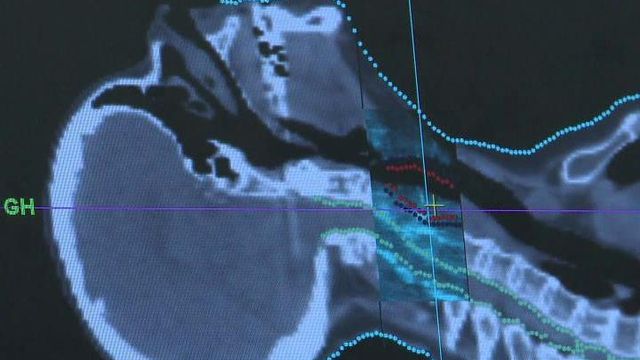Cancer treatment method allows for more targeted approach
Treating cancer is always tricky, but some cancers occur in parts of the body where radiation treatments may have harmful side effects on surrounding organs or healthy structures. Thanks to a new technology called Tomotherapy being offered at Rex Hospital, treating hard-to-get-to types of cancer has become a bit less complex.
Posted — UpdatedIt makes the treatment approach more difficult, but not impossible. Thanks to a new technology called tomotherapy, treating hard-to-get-to types of cancer has become a bit less complex.
For Arthur Zucker, an 89-year-old prostate cancer survivor, the treatment method turned out to be just what the doctor ordered.
Zucker had no family history of cancer, but he still continued to get regular prostate exams and blood tests.
"As the PSA tests showed higher and higher readings, it became clear that there was the potential of a problem," Zucker said.
Zukcer had an aggressive type of cancer, but it hadn't spread, which made him a perfect candidate for tomotherapy.
"[Tomotherapy] delivers really the best cutting-edge, intensity-modulated radiation therapy that is available on the market," Dr. Justin Wu, a radiation oncologist at Rex Hospital, said.
Tomotherapy is useful to treat hard-to-reach tumors because it can move 360 degrees around the patient for treatment. The device, shaped like a CT scan, can aim at tumors from 51 angles and is a faster process than standard radiation therapy.
Before treatment begins, a planning scan provides 3D images so radiation beams can zero in on targets according to shape, size and location on the specific day of the treatment.
During the treatment, the intensity and direction of radiation beams can be adjusted in real time.
"More accurate targeting of the tumor really increases the chance that we'll cure the patient," Wu said. "We are hitting what we want to hit with the radiation dose we intend."
It worked for Zucker, who has finished his treatments and has no sign of cancer.
"We've accomplished what we've wanted to accomplish so far," Zucker said.
Rex and the University of North Carolina at Chapel Hill Medical Center are two of the three hospitals in the state that have tomotherapy units.
• Credits
Copyright 2024 by Capitol Broadcasting Company. All rights reserved. This material may not be published, broadcast, rewritten or redistributed.






